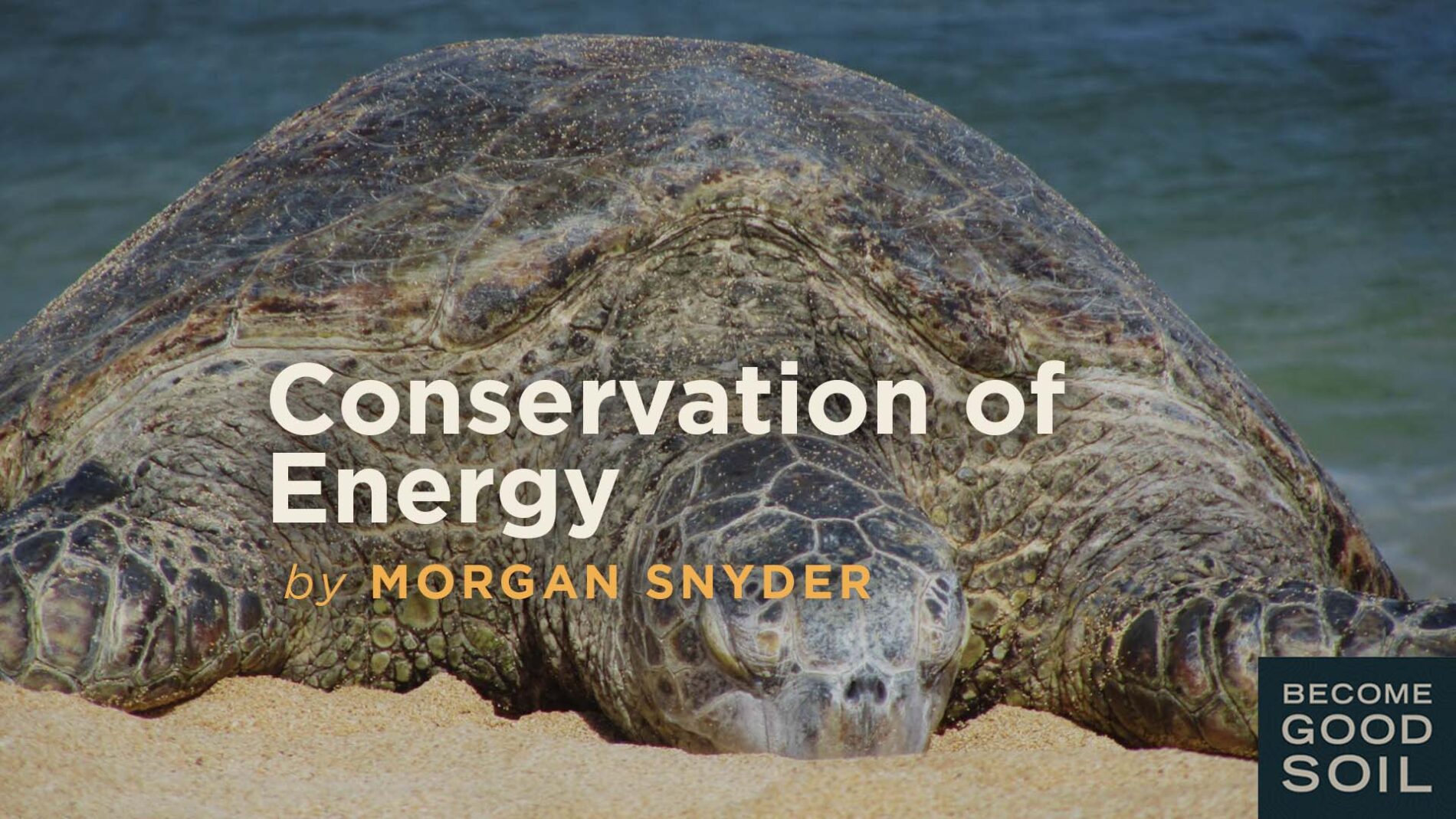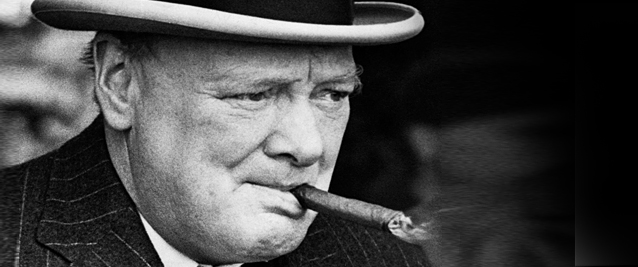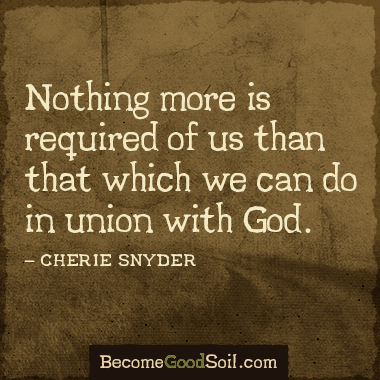Conservation of Energy

Winston Churchill
Few men have been regarded in the annals of recent history with more celebration than Winston Churchill. What intrigues me is something I read recently about Churchill’s own understanding of the qualities that gave his life and strength such power and efficacy.
In his biography of this British hero, Churchill, Paul Johnson shares this story:
In 1946, I had the good fortune to ask him a question:
“Mr. Churchill, sir, to what do you attribute your success in life?”
Without pause or hesitation, he replied:
“Conservation of energy. Never stand up when you can sit down, and never sit down when you can lie down.”
Johnson expands on the manner in which Churchill conserved energy in his daily life:
Churchill was capable of tremendous physical and intellectual efforts, of high intensity over long periods, often with little sleep. But he had corresponding powers of relaxation, filled with a variety of pleasurable occupations, and he also had the gift of taking short naps when time permitted. Again, when possible, he spent his mornings in bed, telephoning, dictating, and receiving visitors. —Paul Johnson, Churchill

Conservation of energy?
This is the lifestyle commitment behind his greatness?
When I first read this, I found Churchill’s response to be wonderfully perplexing and, frankly, unnerving.
HOW MUCH ENERGY DO YOU WANT TO GIVE THIS?
Cherie and I were having a conversation about a relational storm brewing on the periphery of our larger circle that was causing me a good deal of distress.
How much energy do you want to give to this?
Her question was kind, but it irked me. Then I realized why.
Suddenly, I was exposed. Again. For this simple reality.
For so long I have lived with no regulator on my intensity.
I do everything intensely. I work intensely, play intensely, exercise intensely, read intensely, worship intensely. For heaven’s sake, I even rest intensely! (Try to make sense of that…)
My default—that is to say, the default of my false self—is full throttle. Mostly it is living in fifth gear: all in, all the time.
And it’s not all good.
Like everyone else, I’ve spent years cultivating an elaborate “fig leaf.” It is the mask of the false self that has been on for so long it is often hard to discern what is really me and what is the “me” I’ve created to interact with the world in an attempt to avoid shame, abate fear, and make life work outside of God.
And one of the habits of my false self is to live attached to an exhausting yoyo of engagement, the high of which is full throttle, all in, nothing held back; the low of which is burnout, exhaustion, and resentment. Sadly, I have spent much of my adult life riding the rise and plummet of this style of engagement.
My intensity is partly how I uniquely bear the image of God. But when this intensity is in the service of the false self, reaching for validation, it is exhausting to myself and often destructive to those I care for most.
The wilderness trail of restoration and repentance is God’s invitation out of this emotional whiplash and the relational pain it causes, into the rhythms of His Kingdom and a growing practice of the spiritual discipline of conservation of energy.
What if there are other options besides full throttle?
What if part of the “light living” Jesus offers is rooted in not bringing all of ourselves to every situation all the time?
What if, in walking with God, we were intended to pause and ask the question, “God, how much energy would You like me to bring to this circumstance? This relationship? This story? This circumstance?”
What if we were to slow down and look at our motivations with honest and loving scrutiny?
What if you found, like me, that much of the underlying motivation for engaging is to avoid feeling bad, or is a reaction to fear or the fear of man, or is simply a motive to answer my deep quest for validation outside my Good Father and Faithful Friend?
In order to live in an “unforced rhythm of grace” (Matthew 11:28-30), we must learn to flow with God in a pace of both offering and restraining energy.
Brent Curtis, a legend of the faith and co-author of The Sacred Romance, put it bluntly regarding many of his counseling clients over the decades:
Their fifteen years of bad decisions is not my crisis.
What I’d give to have that freedom, that courage. That love.
Bottom line, we have finite resources. And we live in a world of infinite need. Jesus gave us this head’s up when He reminded us that “the poor will always be among us.”
In the words of mentors Tim and Anne Evans, we must discern between “good things” and “God things,” because if we give more of ourselves to “good” things/stories/people/battles/opportunities, less of us is available for the “God things” that are the bullseye of God’s target for us.
Furthermore, our depletion leads us deeper into the self-sufficient life and away from a life of union with God fueled and protected by unforced rhythms of grace.
Nothing more is required of us than that which we can do in union with God. —Cherie Snyder
What if these words are actually true?
What if this was part of the invitation from the Holy Spirit into light living?
Am I taking on more than I can do in union with God?
It’s a vital question.
How many days have I come home from work utterly depleted? Instead of being able to offer my strength to my wife and my kids, all I can reach for is a little comfort and relief. My parenting becomes merely damage control rather than engagement of the heart, and the look in my eye says to my wife, “don’t you dare need something from me.”
What is it I have taken on that may be “good” but not “God,” that causes me to have so little left in my tank for my family?
TURTLES AND GOATS AND REPTILES
Sea turtles, one of the oldest living creatures on the planet, can reduce their heart rate to nine beats per minute. In the most severe months of winter, mountain goats thrive on wind-swept cliffs by lowering their heart rate to thirty percent of their normal standing rate. The secret is out on the most winning sled dog and musher teams in the world’s most grueling multi-day race, the Iditarod: they rest more hours than they race.
What secret might these stories be telling us?
Does not wisdom call out, does not understanding raise her voice? (Proverbs 8:1)
Have you noticed this about Jesus’ way? Intensity is no doubt a weapon in His arsenal. It wasn’t a soft and passive man that braided a whip from rawhide and created pandemonium in the synagogue, turning tables and sending animals fleeing and money flying (Matthew 21:12). But intensity wasn’t His only weapon. And by the stories of those closest to Him, it wasn’t even His preferred method. It’s amazing how often He slips away to rest, heal, be alone, be restored (Mark 1:35). It’s amazing how often He leaves the scene with need at His doorstep, leaving people wanting. Or the way He walks away from genuine need without any explanation to those hurting, broken, and waiting for a rescue (Mark 1:38). It’s staggering, really.
Right when His fame and influence is building, He vanishes, leaving peculiar words to the healed like, “Hey, be sure not to tell anyone else” (Matthew 8:4). How about when He is fast asleep on a cushion in the hull of a sailboat while the rest of the men burn tons of energy, not only trying to man the sails in a furious storm, but all the more in panic and fear (Matthew 4:38)?
He is the master of conservation of energy. Look at His story with this lens; you will see it time and time again.
What if the “conservation of energy”and a rhythm of engagement and rest was powerful in Churchill’s life because it is actually one of the secrets to Kingdom Living?
An honest confession: I’m terrible at the spiritual discipline of conservation of energy.
It is one of the most significant spiritual frontiers of my masculine journey today.
But here’s my hope: it’s changing. Like the tortoise, slow and steady wins the race. People who wear flip flops used to bug me. Now I own and wear two pairs (more on that here). I practice a daily habit of stillness. In each early morning time of solitude. Midstream in most every workout I do. My packable hammock has become an “essential item” on every trip into the backcountry, even day hiking trips. I sleep, on average, over eight hours a night. I turn my email off around 5:00 p.m. and my phone off most Sundays. Just a few external examples of some internal shift. It works.
How much energy will you bring to this situation? This relationship? This mission?
Where are you burning energy on good things that are not from God?
Where are you investing more emotional and mental energy than God is asking of you?
Ask God. He might surprise you.
(Worn, Tenth Avenue North – Here’s a song that God has used to minister to a lot of men in this place…)
Turning to the Heart of God
Father, I confess that my “all in” posture of using energy has a bunch of mixed motivations. Some holy, some not. Forgive me for my lack of awareness in seeing that the amount of energy I bring to any situation is a choice. A choice You are inviting me to walk out with You. A choice requiring wisdom and revelation. A choice in which much hangs in the balance. I want to be a steward of what You have entrusted to me. I want to bring my best strength to the deepest needs that You have intended for me to fulfill. I need the grace to let go of all the other demands on my time, my energy, my heart. The poor will always be among us. That warning was for the protection of my heart. I plead for a wise and discerning heart. I release all that I am carrying to You. All the people. All the responsibilities. All the needs. All the “not yet.” I release it to You. I believe You are more than able to come through for every need.
I believe, Father.
Father, this is my prayer today. You are more than enough…
When the road is long
And the desert wide
When the path is steep
And the mountain high
If I rise or fall
If I’m weak or strong
Whether great or small
This will be my song
My God will supply all my needs
—(Lyrics, Jared Anderson, According to His Word, The Narrow Road)
Jesus, I choose union with You. I want to risk believing that You are inviting me to have a regulator on my energy. That conservation of energy is part of the way of the Narrow Road. “How much energy do you want me to bring to this, Jesus?” Show me, lead me. You have my attention. And what is below this? Holy Spirit, would You expose my motivations to give more to certain relationships, needs, and tasks than You are asking me to give?
Heal me, Jesus. Deliver me from the entanglements that lead to my exhaustion.
Help me grow and be trained into a Kingdom way of engagement and rest. You provided the ultimate model: resting for nearly fifteen percent of the time You exercised Your creative mastery in breathing all of this story into reality (Gen. 2). You set apart rest as a command, as a guidepost to life. You modeled rhythm in a way that I have not accepted or embraced.
Show me the Narrow Gate and the Narrow Road. I choose union with You to walk through that Gate today. Shine Your lamp upon my feet and Your light upon my path. I invite You to lead me in the next step. I choose to hold onto this Kingdom idea of “Conservation of Energy.” What is it that You want to say? You have my attention and my life. I trust You.
(One last song I’d recommend that bring the Father into this place of confession, need and hope…)
End of Play, Karla Adolphe (You can find this on the Dig Deeper, Chillax at BecomeGoodSoil.com)
If this blog was particularly helpful you might read Did Jesus Wear Flip Flops next…


